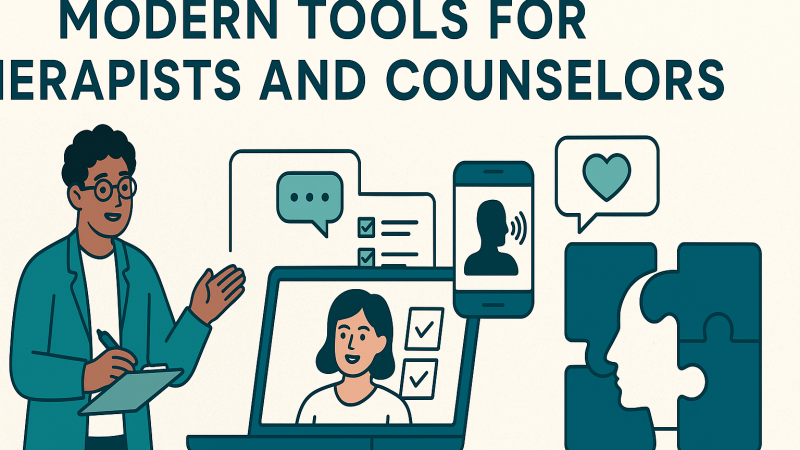Electronic Health Records: Improving Patient Care and Privacy

Electronic Health Records (EHRs) have transformed the way medical professionals and patients interact with health data. As we continue to embrace technology, EHRs bring numerous benefits and challenges to the healthcare industry. This blog post will discuss the positive impact EHRs have on patient care and privacy, while also addressing the concerns related to data security.
The Benefits for Medical Professionals
- Efficiency: EHRs can significantly reduce paperwork, allowing medical professionals to access and update patient information more quickly.
- Coordination: Sharing patient information with other healthcare providers becomes easier, enabling better cooperation and more informed decision-making.
- Decision Support: EHRs can prompt clinicians on best practices and guide them in making more data-driven decisions.
The Benefits for Patients
- Access: Patients can access their health records more easily, making it simpler to plan and coordinate their care.
- Empowerment: EHRs can help patients become more active participants in their healthcare by providing access to educational resources and care recommendations.
- Convenience: With electronic prescriptions and appointment scheduling, patients can enjoy more convenience in managing their healthcare.
Specialty EHRs: Behavioral Health
For certain healthcare specialties, such as behavioral health, the use of specialty-specific EHRs can improve patient care by catering to the specific needs of the practice. A behavioral health EHR can help providers manage and track mental health treatment plans and outcomes more effectively, offering tailored functionality not found in general EHRs.
Data Privacy and Security Concerns
While EHRs have numerous benefits, they have also heightened privacy and data security concerns. Data breaches can expose sensitive patient information, which may lead to identity theft or unauthorized disclosure of personal health information. To address these concerns, healthcare organizations must take steps to ensure their EHR systems are secure and compliant with relevant regulations.
Challenges in Implementing EHRs
Implementing EHRs can be a complex process for healthcare organizations. The need for staff training, process redesign, and investments in technology can present challenges. Additionally, interoperability between different EHR systems is crucial for effective information sharing, and achieving seamless integration can be difficult for some organizations. Despite these obstacles, persisting in EHR adoption is essential to improving the overall patient experience and care quality.
Data Security Regulations
Regulations such as the Health Insurance Portability and Accountability Act (HIPAA) in the United States, provide guidelines for protecting patient data and privacy. Healthcare providers are expected to comply with these regulations, and failure to do so can result in significant penalties. By fulfilling their regulatory responsibilities, medical professionals can help ensure the security of EHRs and protect patients’ sensitive health information.
Telemedicine and EHRs
The recent rise in telemedicine has further emphasized the importance of EHRs in healthcare. With remote consultations and virtual care becoming more prevalent, telemedicine relies heavily on accurate, up-to-date patient information. EHRs can facilitate the telemedicine process by providing healthcare providers with pertinent medical data. Moreover, EHRs allow telemedicine providers to deliver more informed care and enhance patient outcomes, underscoring the continued need for secure, accessible electronic health records.
Collaboration and Patient Outcomes
One of the most significant benefits of EHRs is their ability to improve collaboration between healthcare providers. A patient’s care journey often involves multiple clinicians and specialists, each contributing to their overall well-being. EHRs can expedite communication and information sharing, resulting in more accurate diagnoses and better treatment plans. Ultimately, the increased coordination translates into better patient outcomes and a more efficient healthcare system.
The Future of EHRs
As technology continues to advance, the use of EHRs is likely to expand, with the potential for artificial intelligence (AI) and machine learning to revolutionize healthcare even further. EHRs powered by AI could help identify patients at risk of particular conditions or provide automated guidance on best practices, leading to more effective and personalized patient care. However, integrating these advancements will require ongoing attention to data privacy and security, ensuring that patients and providers can continue to reap the rewards of EHRs.
Protecting Patient Privacy with EHRs
- Access Controls: EHRs must have strict access controls to ensure only authorized users can view patient information.
- Encryption: Data transmitted between EHR systems should be encrypted to prevent unauthorized access.
- Auditing: Regular audits of EHR systems can detect and address potential security vulnerabilities or breaches.
Conclusion
Electronic Health Records have undeniably revolutionized patient care and privacy. The benefits EHRs offer for both patients and healthcare providers, from efficiency to better decision-making and convenience, are significant. However, we must remain vigilant in protecting patient privacy and ensuring data security while embracing the potential for future innovations in EHR technology.



